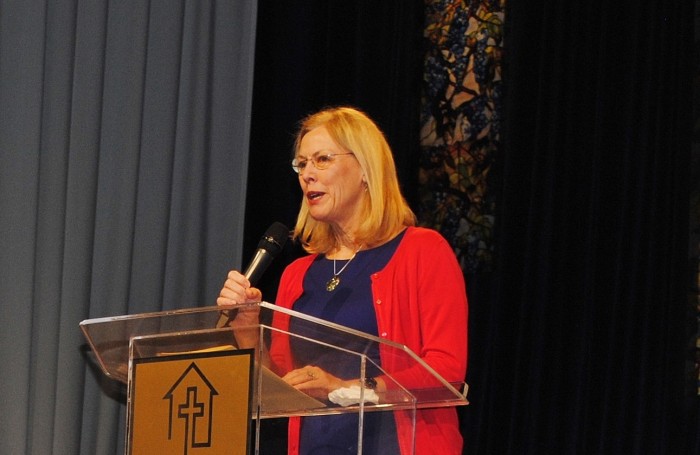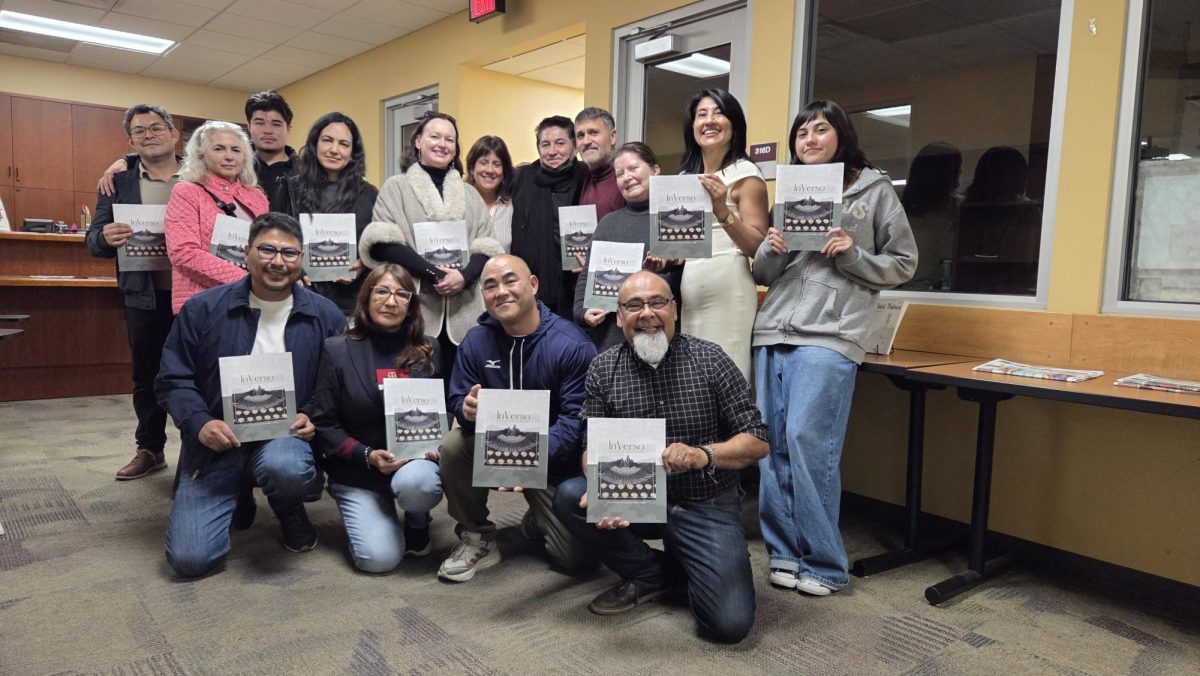CSUN President Dianne Harrison was at H.O.P.E.’s House Christian Ministries today in Granada Hills for the annual “Super Sunday,” a California State University-wide outreach program designed to increase university enrollment among students of African American descent.
“The purpose of our visits is not only because it’s black history month,” Harrison said during a speech in the middle of the church service. “But it is also an intentional effort to try and increase our outreach in the African American community.”
The program had its start in 2006, with faculty from the Cal State system visiting more than 20 churches in California. This year the number of churches visited has grown to more than 100.
“But Super Sunday is one day,” Harrison said. “And we don’t want to end with one day.”
This was the third year Harrison went to H.O.P.E’s house for “Super Sunday” while the Cal State program has reached its tenth year. In the past three decades, according to the National Center for Education Statistics, the percentage of African American students enrolled in post-secondary institutions has risen from 10 to 15 percent. Meanwhile, according to the Los Angeles Times, enrollment at the Cal State system has declined from 5.8 percent of the enrolled students in 2004 to 4.6 percent in 2013.
Graduating within four years is also a problem, not only for African Americans but for all students. At CSUN, the most recent numbers suggest that 11 percent of the student population graduated within four years, down from 14 percent nearly a decade ago.
“For several years now, the CSU has pushed toward new and innovative plans to increase not just college attendance but college graduation rates,” Harrison said. “It’s not enough just to go. And part of understanding the importance of attendance and completion is to help parents understand the crucial role that parents play and their involvement in their child’s education at very early ages and certainly through high school and into college.”
Harrison noted that one-third of the students enrolled in the Cal State system are the first in their families to attend college. According to the National Postsecondary Student Aid Study, one-third of students in the entire nation are first generation college students. While enrollment figures are promising, the same study showed that three out of five of those students don’t graduate in six years.
Encouragement and expectations of finishing college are factors in attending college. Of the major ethnicities in the United States, Asian Americans have the highest percentage of adults with at least a bachelor’s degree. According to the NCES, they also have a higher percentage of parents – at 80 percent – who expect their children to finish college, compared to 64 percent of African American students. A higher level of expectation also corresponded with higher grades.
Harrison spoke to the attendants, which included alumni of CSUN, the University of California, Los Angeles and the University of Southern California, about her mother, a woman with four children who, after her husband died when Harrison was 14-years-old, had to go back to work to support her family.
“Without a college degree it was tough,” Harrison said. “She worked in an emergency room in a hospital alongside nurses and she was basically doing the same job but [for] half the pay because she never got her degree. So she always told me ‘you get your education, you get your degree. Nobody can take that away from you.’”

















